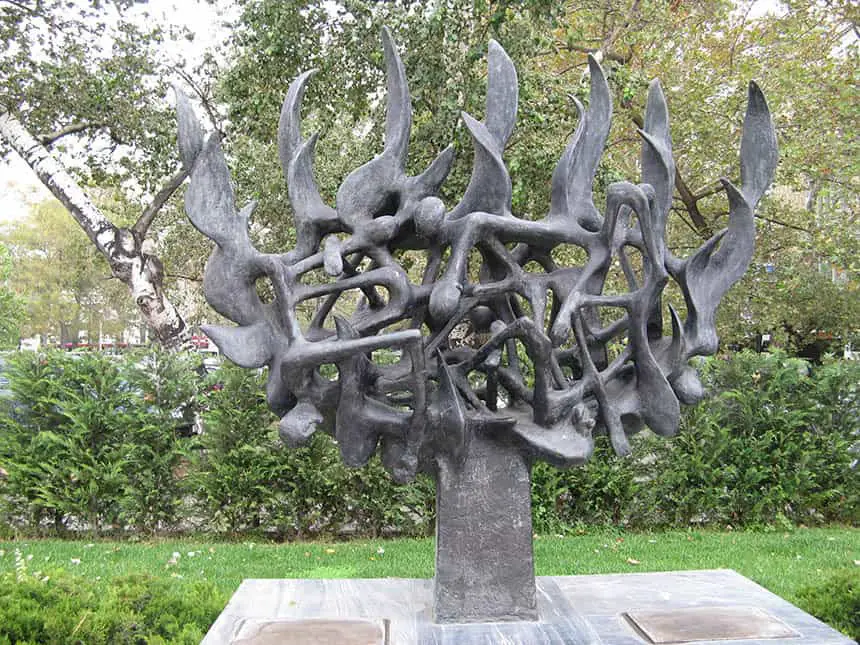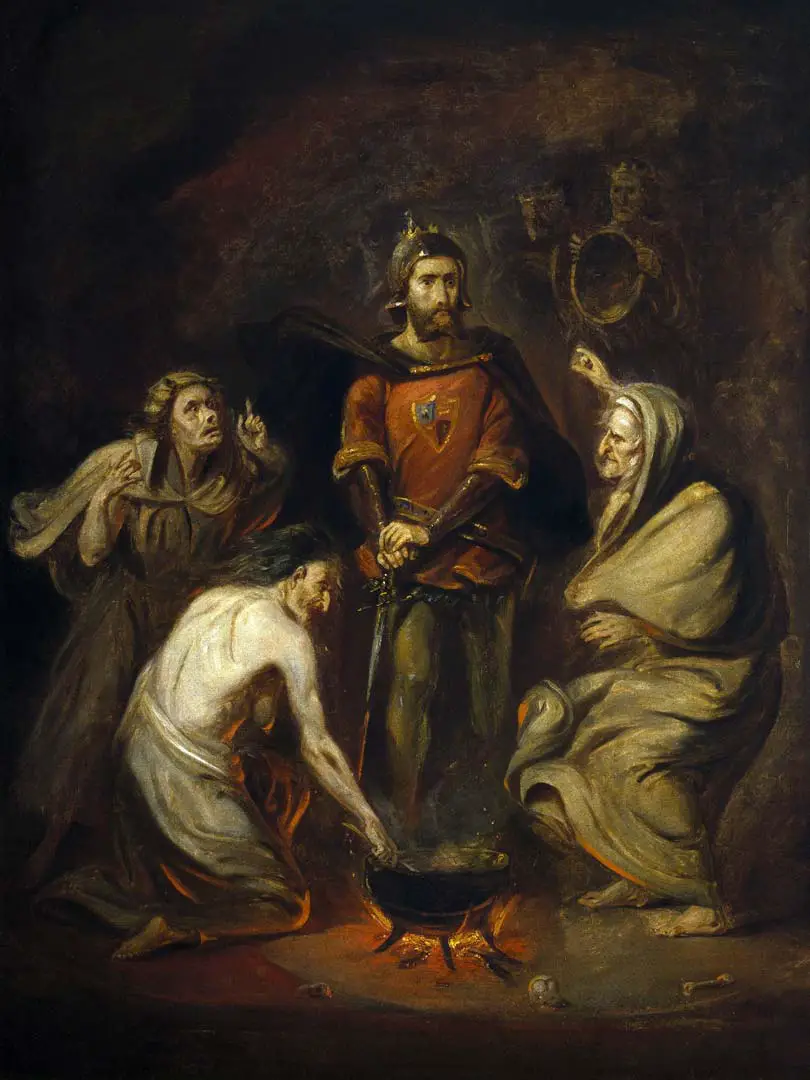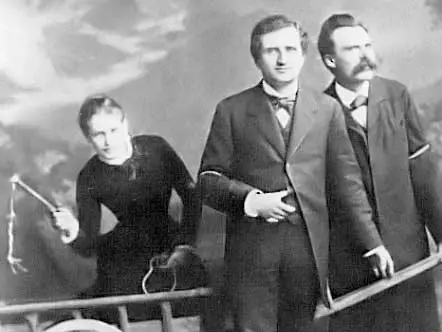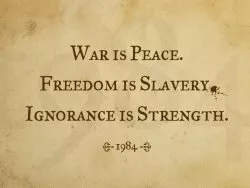Differences between Marxism, Leninism, Trotskyism, Stalinism, and Maoism
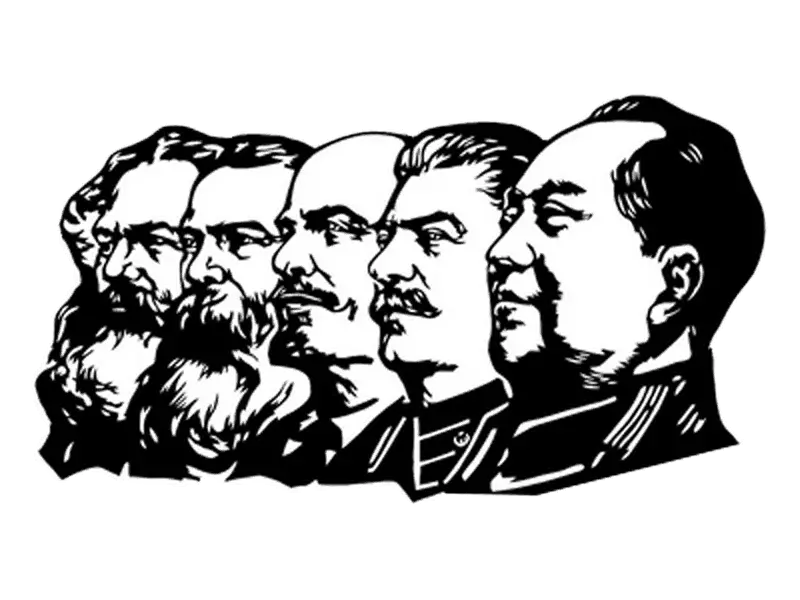

Differences between Marxism, Leninism, Trotskyism, Stalinism, and Maoism
While teaching a module on the Communist Manifesto (and the Manifesto alone), a student of mine admitted to struggle with different forms of Marxism. Though I am not an expert on these, being schooled in Marxism only, it became apparent that I should perhaps have a somewhat rudimentary knowledge of what the differences are in order to satisfy different interests. At the same time, there are many forms of Marxism – so to enumerate all the differences is like taking up on enumerating the differences between differences of Christianity (of which there are certainly more variants, my point is that it is an equally impossible task). So in what follows, a few paragraphs on the major Marxist views are presented.
Marxism

Karl Marx and Friedrich Engels
Marxism is perhaps the most uncertain ideology in the Marxist school, precisely because we are still reading Marx – and thus also keep interpreting Marx. Matters are not made any easier because when we approach Marxism as an ideology, there is a certain quest for purity – a ‘pure’ Marxist view (which is, obvious to most academics, not really possible). So Marxism refers to both what Marx thought and how to interpret him. The general agreement is that Marx identified ‘class struggle’ in history; all of history is thus approach from the antagonistic confrontation between the classes. To be sure, this antagonism is also at the core of historical progress.
Fast forward to the classical age (I use Foucault’s term here, classical age is the period before the French Revolution), Marx identifies an antagonism between the capitalist bourgeois class and the aristocratic class; where the former wins the struggle and establishes a capitalist society. But of course this does not eliminate the antagonisms, but instead creates a new antagonistic relation, now between the capitalists and the proletariat (workers). Their clash is both necessary and unavoidable, it is almost pre-determined by the conditions set out by capitalism (its ‘inherent contradictions’) – the proletariat, once united, will eventually overthrow the capitalists and create a democratic classless society.1
Marx was pretty sure about the eventual fall of capitalism, so much so that he heralded the idea that there is no point of waiting for it to fall. Capitalism functions in cycles of booms and recessions, it needs unemployment, it needs wage labour, etc. For Marx, it eventually comes down to the inevitability of the proletariat to revolt against the workings of the free market (as we often see with the recessions – all their hard work goes to nothing, while a handful of capitalists profit from the instability that they themselves have caused). Note that Marx does not predict a violent overthrow, though it is certainly the case that he does not exclude it. In his lifetime, he did not incite any violence (to my knowledge at least), and in fact the Manifesto treats this kind of violence somewhat mockingly:
They direct their attacks not against the bourgeois conditions of production, but against the instruments of production themselves; they destroy imported wares that compete with their labour, they smash to pieces machinery, they set factories ablaze
A little before this, the Manifesto mentions that a “violent overthrow [gewaltsamen Sturz] of the bourgeoisie lays the foundation for the sway of the proletariat”. But we should be careful here in how we read ‘violent’, for the German word easily lends to a translation of an overthrow by force. That is, ‘gewaltsamen’ could be rendered as pertaining to a forcible overthrow, one that does not follow the currently established procedures (e.g. through election), but not necessarily one that is violent.
Additionally, for Marx the revolt must be a global revolt – the interest of the proletariat is a global interest and the possibility of the classless society is only feasible if the movement is a global movement. There is no division in ethnicity, nationality, sex, etc. – it is in the interest of the proletariat to put all differences aside (though not to disregard them) in their struggle against the capitalist class.
Leninism

Vladimir Ilyich Lenin
Lenin largely builds on Marx, but he is a ‘professional revolutionary’ (that’s what Arendt calls him, and I am sticking with that). While Marx did not articulate much on the political workings of the revolution and was mainly concerned with the flaws in the economy, Lenin thought to articulate how the revolution should proceed in political terms (and so did almost everyone else after Marx). As we saw before, Marx only mentioned that the new classless society would be democratic, but how it would come about, or even in what sense democratic (representative? participatory? direct? etc.), was pretty much left open to the following theorists. The Manifesto only mentions that establishing of democracy by the proletariat after the revolution is a priority: “the first step in the revolution by the working class is to raise the proletariat to the position of ruling class to win the battle of democracy”; but it leaves the details rather empty.
Here, Lenin stepped in to dictate the organisation of the proletariat. In my expertise with ‘the political’, I would wager that Lenin was the sole Marxist after Marx to understand this notion without its concrete articulation. The political (in its Schmittian formulation) is a decision between friend and enemy. It is a decision on the concrete existence of the enemy that is to be repelled. I emphasise concrete because for the future Marxists that will be dealt with here, this concreteness disappears into a paradoxically ephemeral yet constant enemy. What Lenin envisaged is a ‘vanguard party’ that would represent the proletariat in its struggle against the bourgeoisie. The idea was that a party would help complete the inevitable end: a classless society. For as long that is not the case, there would be a need for a party to work out all the details. The core difference here is with other Marxists of the time, who did not envisage any political groupings as above others, they only understood the progression towards the classless society in egalitarian terms. With Lenin we thus get the popularisation of the dictatorship of the proletariat. While there is good reason to assume that contemporary Marxist theorists were not in agreement with Lenin, there is an equally good reason to assume that Lenin was not truly in agreement with himself. His work changes towards a more accepted view prior to the revolution (as if to gain popularity) and returns back to his previous views after. In fact, Arendt’s point that Lenin was a ‘professional revolutionary’ is meant as a point of critique, not praise of any sort.
One core influence of Lenin (and something that actually shows that he was more than a politician to this day), is an understanding of the capitalist system as an imperialist project. Capitalism cannot be contained within a state and is necessarily a global project. The share in the world, after all, is much larger than what can be achieved domestically. But an interest in other markets cannot go without clashing with those markets’ already established economies (or even better, if there aren’t any, the new market can be dominated). Global competition thus creates only a handful of businesses dominating the markets. These business, in turn, form cartels, and not only for market manipulation, but also for dominating the primary resources. The outcome is the familiar exploitation of the third world by the first world states.
But there is more. In Lenin’s estimation, business in the home-country would be too dominant to be resisted by the government. They would in fact be able to dictate what the government does, either through bribery or through monopoly on certain goods (say, steel). Together, business and government would then be able to engage in global conflicts for primary resources, exploiting large portions of the world population. That is, capitalism ultimately requires an exploitative system in order to maintain its dominating position over other countries (hence imperialism). It either exploits labour, or it exports capital to sustain its colonial grip.2 If it fails in doing any of these through its function as a capitalist system, it resorts to bribery of politician, labour union leaders, strike organisers, etc. Lenin’s argument may be outdated on some points, but others are quite penetrating to this day.3
(Lenin pretty much wrote everything he thought about, which results in roughly 45 volumes. I doubt there are many people who have read all of them, and I am certainly not one of them. So this brief note on his deviation and similarity with Marx would do, I hope.)
Trotskyism

Leon Trotsky
Trotsky’s main force was twofold, the revolution ought to be global (á la Marx) and it has to be permanent/continuous (á la Jefferson). I will return to the first point in relation to Stalinism later. On the question of permanent revolution, which is Trotskyism’s main characteristic, we should first note what he takes from Marx. The notion of permanent revolution comes from the end of the 1850 Address of the Central Committee to the Communist League. Marx and Engels end the Address with the following words:
Although the German workers cannot come to power and achieve the realization of their class interests without passing through a protracted revolutionary development, this time they can at least be certain that the first act of the approaching revolutionary drama will coincide with the direct victory of their own class in France and will thereby be accelerated. But they themselves must contribute most to their final victory, by informing themselves of their own class interests, by taking up their independent political position as soon as possible, by not allowing themselves to be misled by the hypocritical phrases of the democratic petty bourgeoisie into doubting for one minute the necessity of an independently organized party of the proletariat. Their battle-cry must be: The Permanent Revolution.
The view of Marx and Engels is that there is always going to be some level of concession made by those who welcome any kind of progress. These people would disregard the final aim and settle for whatever it is that is offered by the other side – after all, any kind of progress is better than no progress; alternatively, they would settle for the intermediate stage with an aim to go further later, but inadvertently jeopardising the final aim. The problem with this kind of thought is that it does not truly change anything politically, because it maintains the status quo of power relations. The changes are not at the level of political power, but at best of temporary socio-economic position (like higher wages, or safety equipment):
it is our interest and our task to make the revolution permanent until all the more or less propertied classes have been driven from their ruling positions, until the proletariat has conquered state power and until the association of the proletarians has progressed sufficiently far – not only in one country but in all the leading countries of the world – that competition between the proletarians of these countries ceases and at least the decisive forces of production are concentrated in the hands of the workers. (ibid., my emphasis)
This passage is precisely something Trotsky elaborates on in his work (The Permanent Revolution). Trotsky follows on the point of permanent and international revolution, but with some (minor) differences. One point of difference is that it is possible to move from one stage of the revolution to another without intermediate stages (i.e. from an almost feudal state that Russia was to one where the working class are in power, without the intermediate stage of petty bourgeois capitalism). Another is the importance of the global character of revolution – or as Lenin called its counterpart: that capitalism is imperialism. It should be noted that for this reason, many Trotskyists thought of him as a return to original Marxism:
Trotskyism is not a new movement, a new doctrine, but the restoration, the revival of genuine Marxism as it was expounded and practiced in the Russian revolution and in the early days of the Communist International (J.P. Cannon, History of American Trotskyism).
Stalinism

Joseph Stalin (by Andrew Newton)
After Lenin’s death, one of the leading questions in Russia was the question of internationalism – should they follow the ‘international revolution’ policy or the ‘socialism in one country’ policy? Trotsky sided with the former position, while Stalin sided with the latter. Stalin was not opposed to the idea that the revolution was to be international, he only opposed the view that all countries in the world had to be follow the revolution more or less simultaneously, or indeed that some countries could not develop socialism independent of others being socialist. At least in the early stages of his rule, he closely followed Lenin’s position that revolutions cannot simply occur everywhere at the same time. Revolutions don’t just drop down from the sky:
‘I know,’ says Lenin, ‘that there are, of course, sages who think they are very clever and even call themselves Socialists, who assert that power should not have been seized until the revolution had broken out in all countries. They do not suspect that by speaking in this way they are deserting the revolution and going over to the side of the bourgeoisie. To wait until the toiling classes bring about a revolution on an international scale means that everybody should stand stock-still in expectation. That is nonsense.’ (Stalin on May 9th, 1925, The Results of the Work of the Fourteenth Conference of the R.C.P.(B.))
This position nevertheless stood in contrast to Trotsky’s emphasis on world revolution (and indeed also Marx and Engels’ position) who emphasised the global character of the revolution.
More importantly, what really defines Stalinism is his economic policy, which aimed to depart from previous economic policy established by Lenin (and which Stalin claimed was still far too close to capitalism). Stalin thus aimed to pursue speedy collectivisation and industrialisation, recording one of the greatest economic booms in history (the most conservative sources have low double digits in the 1940s, while the official channels state 10x increase between 1922 and 1940).4 That this policy was successful is almost beyond doubt, even if the numbers were exaggerated; but it was also costly (in human life terms). For this reason some refer to Stalinism as any doctrine that is overly authoritarian or has the potential of costing lives. The important note here is that one should not exclude the former (economic policy) from the latter (cost of lives) – to do so is to completely miss the point of Stalinism. That said, I am not arguing for Stalin’s policy (as some Marxists have done, like Frederic Jameson; nor am I condemning it, like most Ukrainians would do today. My aim is only to say that Stalin’s economic policy is what characterises Stalinism, and not simply the atrocities, which, though inevitable result of these policies, can be historically grounded in any ideology. Stalinism has everything to do with murdering, gulags, etc., but not as an isolated/insulated political move. To think so is to ignore every state’s history, where one will find all these without a mention of Stalinism at some dark period of their respective histories (US plantations closely resemble gulag working camps, but could not be further removed from Stalin ideologically; the same could be said of any European colonial power, for instance).
Maoism

Young Mao (in 1927)
Maoism is a curious anomaly in the bunch, partly because China is still a communist state, and partly because it came with an experience of other communists before it, and so was able to adapt to what Mao thought would work best. Mao’s main contention rested on the view that the working class could not be a revolutionary vanguard (á la Lenin) – it barely existed in China at the time. Instead, the majority of China’s population consisted of peasants, so that the key role of the revolution should rest with them. Maoism is thus an adaptation of Marx and Lenin to the conditions of China – not the working class are exploited, but the peasants; ipso facto, not the working class are the revolutionary force, but the peasants. The strength of this deviation really depends on the reader. One could go as far as stating a complete negation of Marxism (after all, no working class); or it could simply mean a minor adaptation in the revolutionary process, while the Great Leap Forward (as Mao’s socio-economic policy) and the Cultural Revolution (as his socio-political policy) were meant to prepare China for the classless society.
One key note in Mao’s progression towards the classless society is his theory of New Democracy. Similar to Trotskyism, the idea is that there is no need to progress from a capitalist bourgeois society to an industrial proletariat society to a classless one. The first two stages can be overcome in one go (i.e. from China’s mostly agrarian population to one where the working class are in power). There is also an element of Stalin’s ‘socialism in one country’ policy, as Mao too advocated the possibility of an independent revolution. Mao equally held to the global character of the revolution, though (at least to my knowledge) very little was done to promote any revolutions outside of China; and he was also the cause of millions deaths as was Stalin (though again, this is not unique to Maoism).
Another key note is the somewhat obscure notice Mao made later in his life: the Three World Theory. The idea is that there are three types of world – the first world of superpowers (USA and USSR), the second world of powers siding with superpowers (Western European states for USA, others for USSR), and a third world of exploited states (basically the rest – Africa, Latin America, and Asia). Mao’s insight here is to divide the world not according to development (as we have today), or according to diplomatic allegiance or formal ideological similarities (like the US and UK Three-World Model). The idea is quite convincing at first, but it is underexplored in terms corroborating empirical data.
Quick note, a lot of Marx related works can be found on one fo the oldest websites online: marxists.org. This will not include the modern interpretations, but it will include almost everything you can think of that is out of copyright, and not only Marx’s own work
Sign up for Paradox of the Day mailing list and please visit our Patreon support page.
- Marx says almost nothing on what democratic is.
- This is a delicate matter, but at the same time something that has become rather obvious since the last financial crisis. Lenin analyses the amount of foreign capital in national banks (in Russia at the time, 3/4 of the Russian bank capital came from France, Germany and Britain) and makes a connection with the earnings of this foreign capital to the domestic share. The conclusion is quite simple: the investors will take the profits, naturally; but they will also maintain a system of dependency upon their capital with the industry (oil, metallurgy and cement industry). Fast forward to present day financial crisis in, say, Greece and the picture becomes quite clear: if Greece wants to get out of the financial crisis, it has to accept the conditions of the foreign investors, but by doing so, it has to give up on its share of the profit unconditionally and thus remain dependent on the foreign capitcal ad infinitum.
- Additionally, he is the main influence on what Popper calls ‘the problem of demarcation’ (i.e. the difference between science and pseudo-science) – they are so close, that wants to call it plagiarism….
- For those looking for a source, you’ll have to consult the statistical yearbooks from USSR. There you would find the following data: 1922 – 1; 1940 – 11; 1960 – 50; 1965 – 68; 1970 – 99; 1975 -131; 1980 – 162; 1981 – 167. Do note that there are plenty of historians who would claim that these numbers are probably unreliable, that they were at a tremendous human cost, that they were despite Stalin, or all three of these points.


